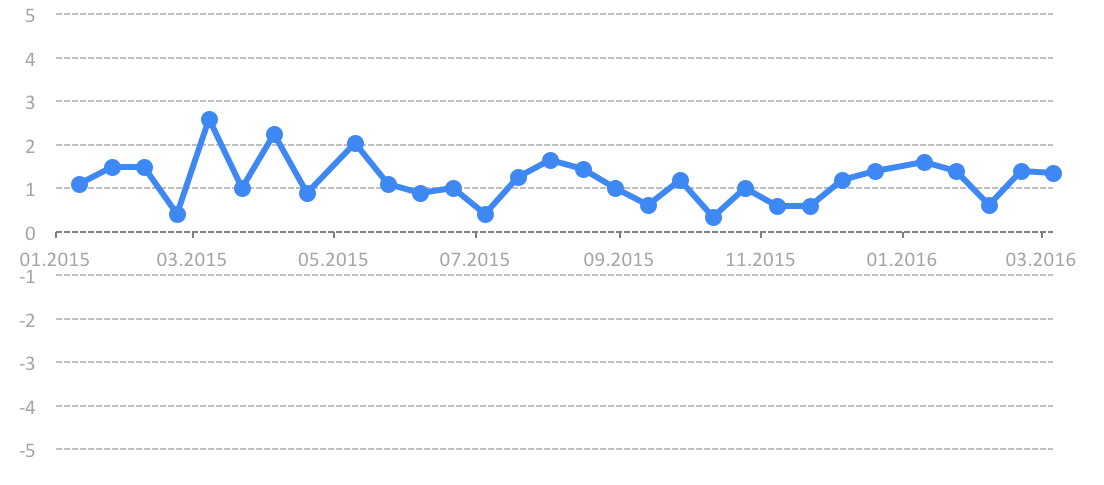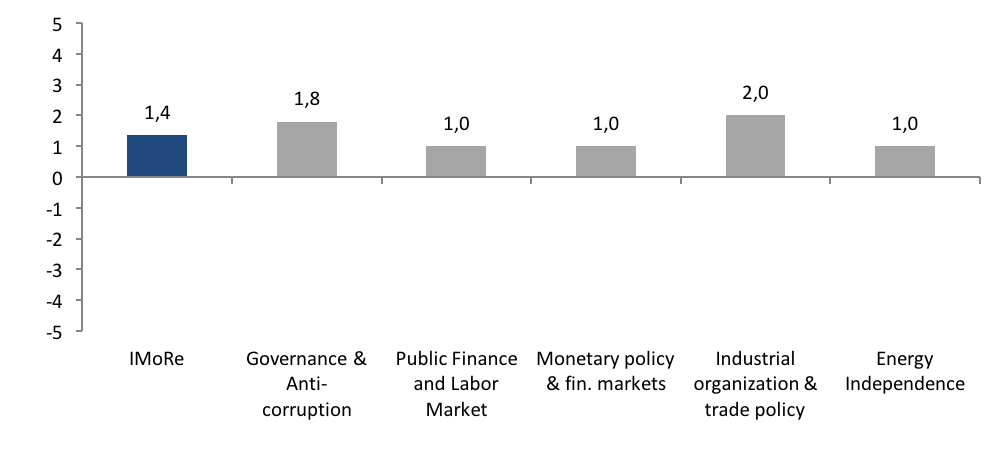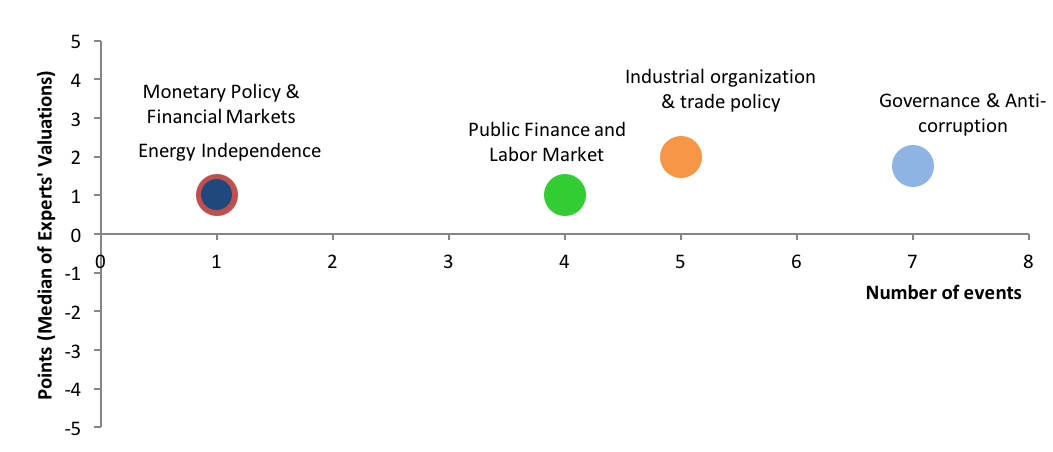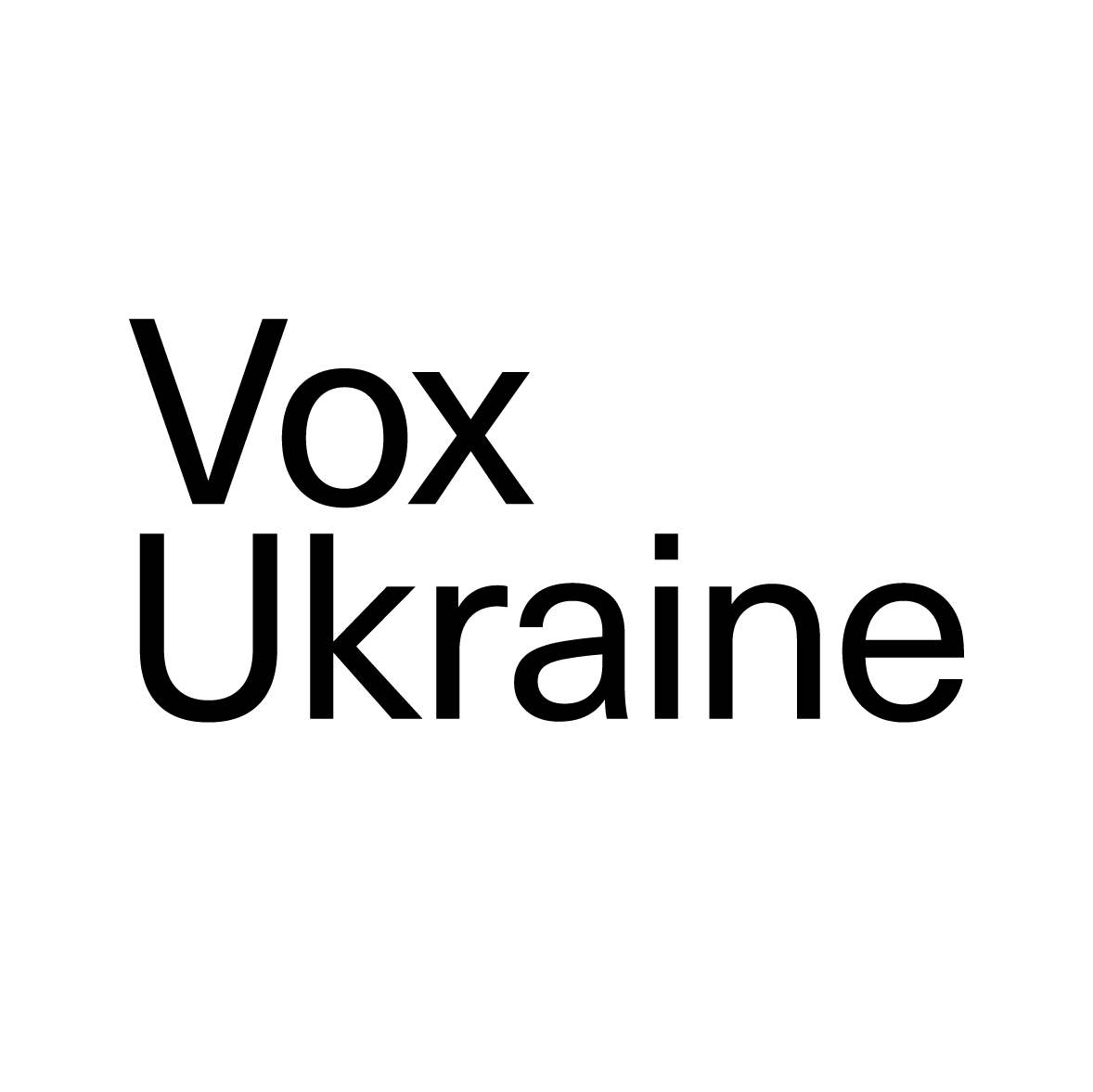Reform Index aims to provide a comprehensive assessment of reform efforts by Ukraine’s authorities. The Index is based on expert assessments of changes in the regulatory environment in five areas. Index for Monitoring Reforms remained at +1.4 points in late February – early March (out of a possible range of -5.0 to +5.0 points).
There are no “star” reforms this period, however, a large number of developments evaluated at 2-3 points each provided for modest Reform Index progress.
Chart 1. Reform Index dynamics*

Chart 2. Reform Index and its components in the current round

Most notable among them were the approval of the election procedure for supervisory board members of state-owned banks, the laws of the “visa-free package”, establishment of transparent procedures for VAT recovery, abolition of restrictions on the virtual reverse gas flow and outdated sanitary norms. Unfortunately, there was also an anti-reform – a change to the electoral law that allows exclusion of candidates from the electoral list after the elections.
The most important positive developments
- Procedure for the election of supervisory board members of state-owned banks of: +3.0 points
The new order (CMU decree 97 of 11.02.2016) introduces requirements for members of supervisory boards concerning education, experience, reputation, independence from both the bank and the authorities. According to Reform Index experts, these requirements are fair, though efficiency of the reform will largely depend on its practical implementation.
- The laws of the “visa-free package”: +3.0 points
In February, the parliament adopted several laws necessary for the liberalization of the EU visa regime for Ukraine. At the moment President signed only two of them – the law (1019-VIII of 18.02.2016) on the special regime of confiscation (+3.0 points) and the law (1021-VIII of 02.18.2016) on strengthening the background for operations of the National Agency of Ukraine for identifying, tracing and management of assets derived from corruption and other crimes (+2.0 points).
- The procedure for keeping registers of VAT refund claims: + 2.5 points
The amendments to the Tax Code adopted at the end of 2015, introduced two open registers for VAT refund claims. This is an important step towards transparent and unconditional refund. However, according to many experts, two registers instead of one create opportunities for corruption, so there is still a room for improvement. Anyway, the new CMU decree (68 of 22.02.2016) on the procedure of keeping registries of VAT refund claims will contribute to fostering a more transparent tax refund system.
- The abolition of outdated USSR sanitary standards: +2.0 points
This is positive news. Sanitary standards were less publicly discussed than, say, mandatory certification, but they created many problems for business. Anti-corruption effect is also expected, since cancellation of these rules makes it impossible to punish for their violation, and therefore opportunities for demanding a bribe for “turning a blind eye“ to their violation will disappear.
Veronika Movchan, The Institute for Economic Research and Policy Consulting
- Abolition of restrictions on a virtual reverse gas flow: +2.0
Amendments to the Customs Code (law 994-VIII of 04.02.2016) allow to receive “reverse” gas without its physical transportation and thus will save money on gas transit.
Amendments allow full use of gas replacement when working with Hungarian gas transmission network where there are no restrictions similar to those in the Ukrainian-Slovak route (Gazprom gas transmission network ).
Denis Sakva, investment company Dragon Capital
However, complete deblocking of gas reverse is only possible after an agreement between European Commission and Gazprom is reached, so it is necessary that Russia recognizes the new trade rules.
Dmytro Naumenko, information campaign “Stronger together!”
Anti-reform
This period, there is a fly in the ointment.
Amendments to the law On Elections of People’s Deputies of Ukraine that allow excluding candidates from electoral lists: -2.0 points
The law (1006-VIII of 16.02.2016) grants parties the right to exclude parliamentary candidates from electoral lists after the announcement of election results and before Central Election Commission declares them elected. This amendment to the law undermines the institution of elections because party leaders will be able to change election results with their own decisions. In the long term this will reduce overall quality of Parliament.
Reform Index aims to provide a comprehensive assessment of reform efforts by Ukraine’s authorities. The Index is based on expert assessments of changes in the regulatory environment in five areas:
- Governance and Anti-Corruption
- Public Finance and Labor Market
- Monetary Policy and Financial Markets
- Industrial Organization and Foreign Trade
- Energy Independence
For details please visit reforms.voxukraine.org
Chart 3. Value of Reform Index components and number of events February 22– March 6, 2016

Main media partner Project partners

Attention
The authors do not work for, consult to, own shares in or receive funding from any company or organization that would benefit from this article, and have no relevant affiliations



